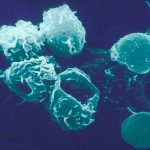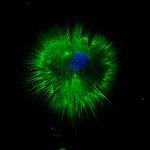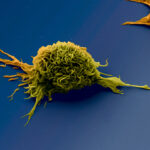Link to Pubmed [PMID] – 28002729
Link to DOI – 10.1016/j.immuni.2016.12.001
Immunity 2016 Dec; 45(6): 1205-1218
Inflammation triggers the differentiation of Ly6Chi monocytes into microbicidal macrophages or monocyte-derived dendritic cells (moDCs). Yet, it is unclear whether environmental inflammatory cues control the polarization of monocytes toward each of these fates or whether specialized monocyte progenitor subsets exist before inflammation. Here, we have shown that naive monocytes are phenotypically heterogeneous and contain an NR4A1- and Flt3L-independent, CCR2-dependent, Flt3+CD11c-MHCII+PU.1hi subset. This subset acted as a precursor for FcγRIII+PD-L2+CD209a+, GM-CSF-dependent moDCs but was distal from the DC lineage, as shown by fate-mapping experiments using Zbtb46. By contrast, Flt3-CD11c-MHCII-PU.1lo monocytes differentiated into FcγRIII+PD-L2-CD209a-iNOS+ macrophages upon microbial stimulation. Importantly, Sfpi1 haploinsufficiency genetically distinguished the precursor activities of monocytes toward moDCs or microbicidal macrophages. Indeed, Sfpi1+/- mice had reduced Flt3+CD11c-MHCII+ monocytes and GM-CSF-dependent FcγRIII+PD-L2+CD209a+ moDCs but generated iNOS+ macrophages more efficiently. Therefore, intercellular disparities of PU.1 expression within naive monocytes segregate progenitor activity for inflammatory iNOS+ macrophages or moDCs.





